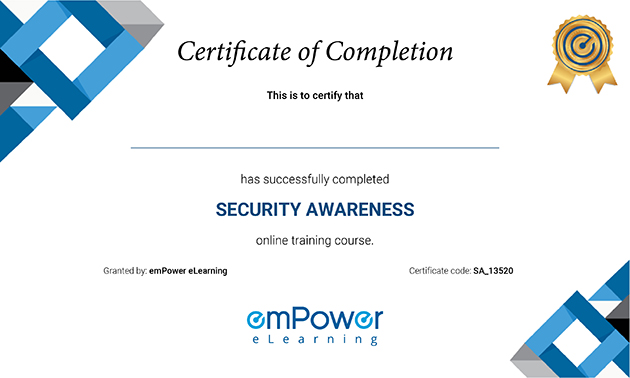Learn how to protect your creative work with our comprehensive copyright courses online
Use emPower’s copyright courses online to understand the copyright rules and regulations that you need to follow to protect yourself.

Our Client

































What is understanding copyright
emPower’s understanding of copyright courses online will help you understand what copyright is, and how it affects the way that you can use materials from books, newspapers and the Internet.
Federal and international copyright laws protect the rights of the creators and authors of books, movies, music, works of art, software, and other types of work. Copyright protection grants copyright holders legal and exclusive rights over their works. This includes (but is not limited to) books, newspaper articles, graphic works, music, movies, and software Failing to comply with such law exposes you and your organization to legal penalties that could run into millions of dollars.
This course would help you to understand what you can copy and what you should avoid under copyright laws. We’ll also look at the ways copyright laws protect software, and explore open source and public domain software.
Course Description
| Category | Information Security |
| Course Name | Understanding Copyright |
| Duration | 30 mins |
| Certificate Included | Yes |
| Languages | English |
| Course Type | Interactive online training |
| Narration | Yes |
| Format | LM-light, SCORM 1.2 |
| Supported Devices | Desktop/Laptop, Tablet, Phone |
| Last Updated | June 30, 2021 |
What you’ll learn
Here’s what you’ll learn by taking emPower’s understanding copyright online training
- What is copyright?
- How copyright affects the way that you use material from books, newspapers, and the Internet
- What can and cannot be protected by copyright
- Patents, trademarks, and trade secrets
- Derivative works and public domain
- How copyright laws apply to music and movies
- Software and copyright
- Penalties for infringement
Curriculum
- Understanding Copyright
- Structure Of This Course
- Copyright: A Legal Warning
- What Is Copyright?
- Who Is The Copyright Holder?
- How Long Does Copyright Last?
- What Can Be Protected By Copyright?
- What Can’t Be Protected By Copyright?
- Patents, Trademarks, And Trademarks
- What are derivative Works
- How Do I Tell If It Is Protected By Copyright?
- What Is the Public Domain?
- Using Copyrighted Materials With Permission
- Can I Use Copyright Material Without Permission?
- Registering Copyright
- Penalties For Infringement
- Music, Movies, And Copyright Law
- Two Forms Of Copyright
- Music And The Internet
- Movies And The Internet
- Software And Copyright
- Software On The Internet
- What Is A Software License?
- Shareware And Old Versions of software
- Open Source Software
- Penalties For Copying Software
Who Should Attend?
- Content Creators and distributors
- Social Media Experts
- Software developers
Why emPower
100s of customers
- 14+ Years of experience in working with small to large businesses from different industries
- 95% customer retention
Customer Experience
- 24x7 dedicated support and toll free number
- 99%+ guaranteed uptime
Extremely Cost-effective
- As low as $0.99/user/yr
- We will match or better the price of your current LMS
Effective Courses
- Each course is 20-40 min long to ensure engagement with quizzes and certificate
- SCORM 1.2 Compliant
Implementation
- No setup costs
- We deploy your customized solution in less than 48 hours
Our Achievements
Here you can review some statistics about our Education Center
Start Your Certification Course Today
When considering copyright protection, you need to consider the work in terms of the following five elements of copyright.
- What’s the nature of the work?
- What’s the nature of ownership?
- Does the copyright allow for exceptions?
- Would your actions infringe upon the owner’s copyright?
- Does your work outweigh the owner’s rights in terms of public interest?
Although limited use of copyrighted works is permitted under the law, you’d need a license from the copyright holder, if you want to use their work for the purposes listed below.
- Reproduce the work
- Prepare derivative works based on the original
- Distribute copies
- Perform the work publicly
- Display the work publicly
Although limited use of copyrighted works is permitted under the law, you’d need a license from the copyright holder. Remember, unauthorized copying of copyrighted works can have serious financial and legal consequences for you and your organization.
Copyright is the legal protection provided to the creators and authors of a work. Under the law, all ‘tangible forms’ of an idea or information are protected under copyright. These include, software programs, books, newspaper articles, music, posters, and graphics.

